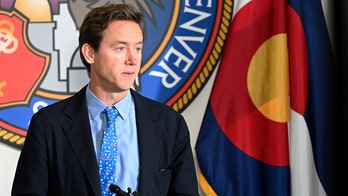Medal of Honor recipient lies in honor at US Capitol
Colonel Ralph Puckett, Jr., the last surviving Medal of Honor recipient from the Korean War, lies in honor Monday in the Rotunda of the U.S. Capitol.
The remains of Col. Ralph Puckett, Jr., the last surviving Medal of Honor recipient from the Korean War, lay in honor Monday in the Rotunda of the U.S. Capitol.
Puckett Jr., born Dec. 8, 1926, died at his home on Monday, April 8. He was 97.
Speaker Mike Johnson and Senate Majority Leader Chuck Schumer announced on Tuesday, April 16, that Congress would honor the fallen Medal of Honor with the prestigious reception.
"The extraordinary valor of Colonel Ralph Puckett, Jr. represents the best of the 1.7 million Americans who left home to fight for freedom in the Korean War," the two lawmakers said in a joint statement. "He demonstrated tireless sacrifice for our country and his fellow Rangers and is an exceptional model for servicemembers and civilians alike. To recognize Colonel Puckett’s remarkable heroism and service, and the contributions of all Korean War veterans, it is our privilege to permit his remains to lie in honor in the Rotunda of the Capitol."
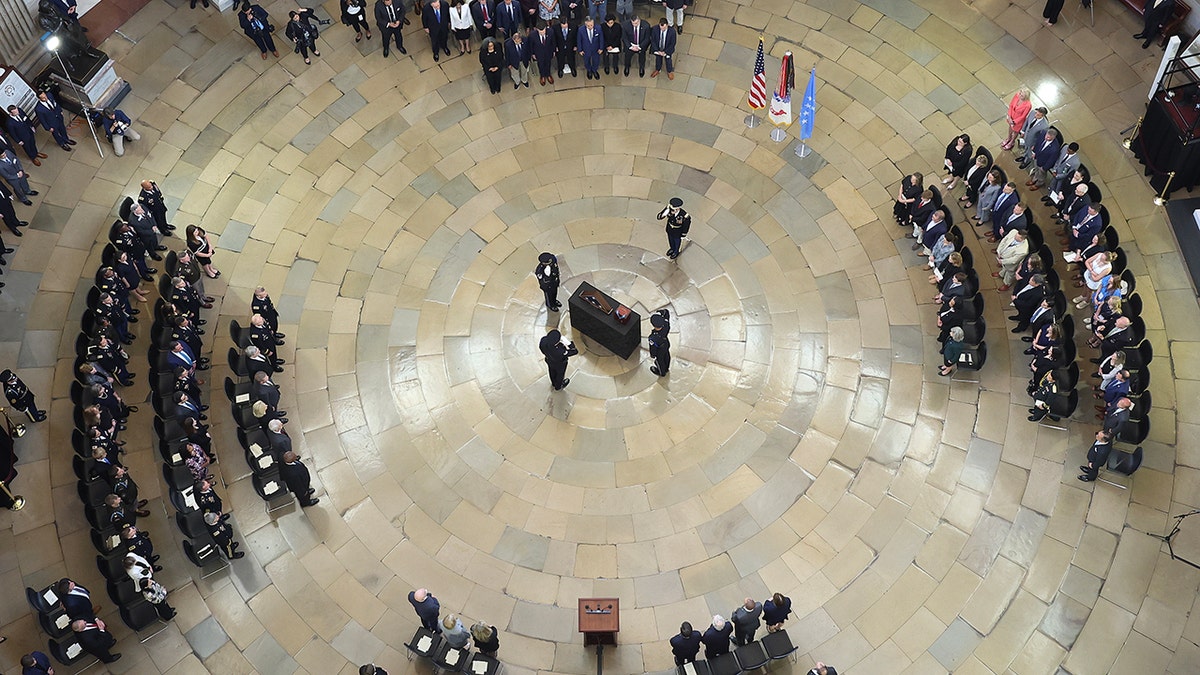
An honor guard salutes an urn containing the cremated remains of retired Army Col. Ralph Puckett Jr. during his congressional tribute in the rotunda of the U.S. Capitol on April 29, 2024, in Washington, D.C. (Kevin Dietsch/Getty Images)
LAST SURVIVING MEDAL OF HONOR RECIPIENT FROM THE KOREAN WAR WILL LIE IN HONOR AT THE US CAPITOL
Lawmakers and members of Puckett’s family surrounded the urn resting in the center of the Capitol’s revered Rotunda.
Puckett Jr. was from Tifton, Georgia. He graduated from the U.S. Military Academy at West Point and was commissioned as an Infantry Officer in 1949, where he went on to have a highly-decorated career.
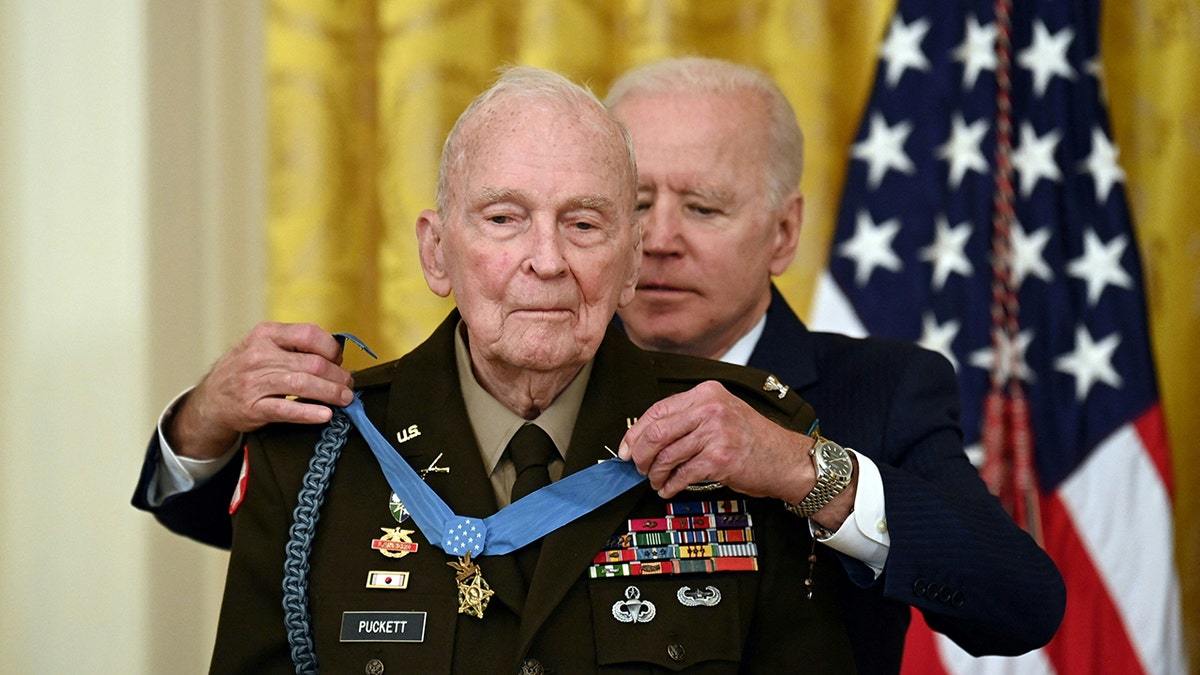
President Biden presented the Medal of Honor to 94-year-old retired Army colonel Ralph Puckett, Jr., for conspicuous gallantry while serving during the Korean War, in 2021. Puckett, Jr. passed away at his home on Monday, April 8. (BRENDAN SMIALOWSKI/AFP via Getty Images)
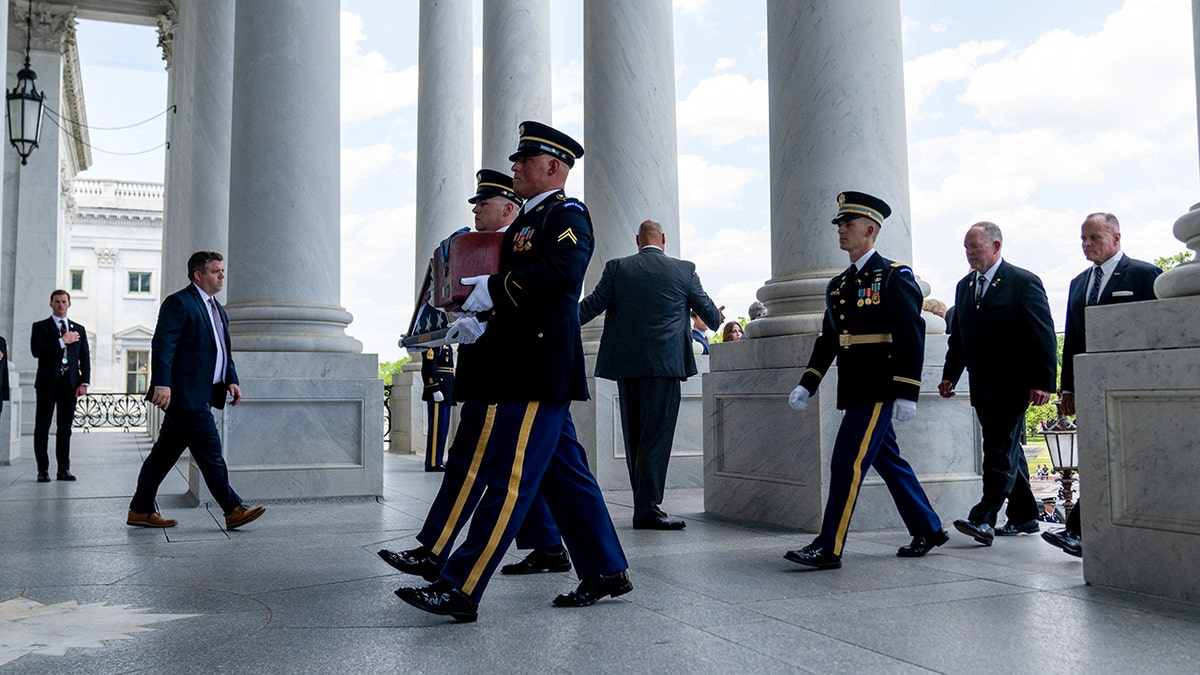
A military honor guard carries the urn of the late U.S. Army Col. Ralph Puckett, upon arrival at the U.S. Capitol where he is lying in honor in the Rotunda on April 29, 2024, in Washington, D.C. Puckett was the last living Medal of Honor recipient from the Korean War before his death earlier this month. (GREG NASH/POOL/AFP via Getty Images)
"He leads from the front. He leads by example. He leads with heart. He is a Ranger, and that’s how Rangers lead — that’s how you lead," President Biden said during a White House Ceremony on May 21, 2021, when he presented Puckett, Jr. with a Medal of Honor. The retired Army colonel was 94 years old at the time.
COL. RALPH PUCKETT, KOREAN WAR HERO AND MEDAL OF HONOR RECIPIENT, DEAD AT 97
Puckett Jr. served as a U.S. Army Ranger and was deployed to the Korean War in 1950 and the Vietnam War in 1967.
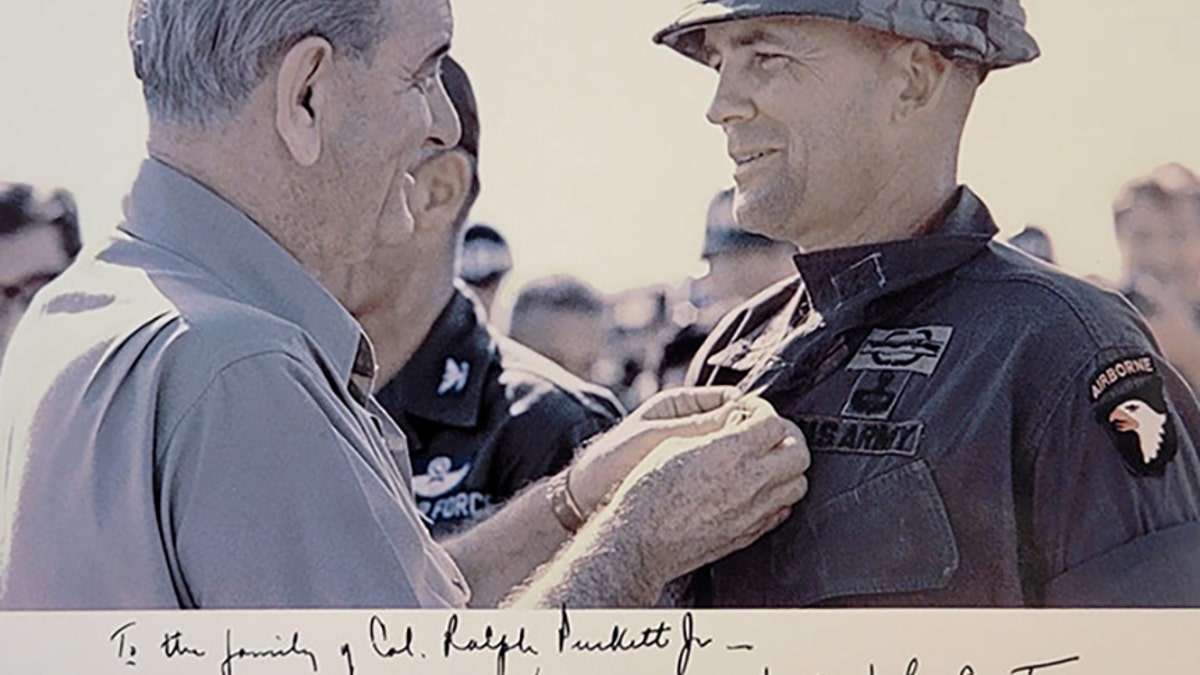
Puckett Jr. served as a U.S. Army Ranger and was deployed to the Korean War in 1950 and the Vietnam War in 1967. (US Army/Puckett Family)
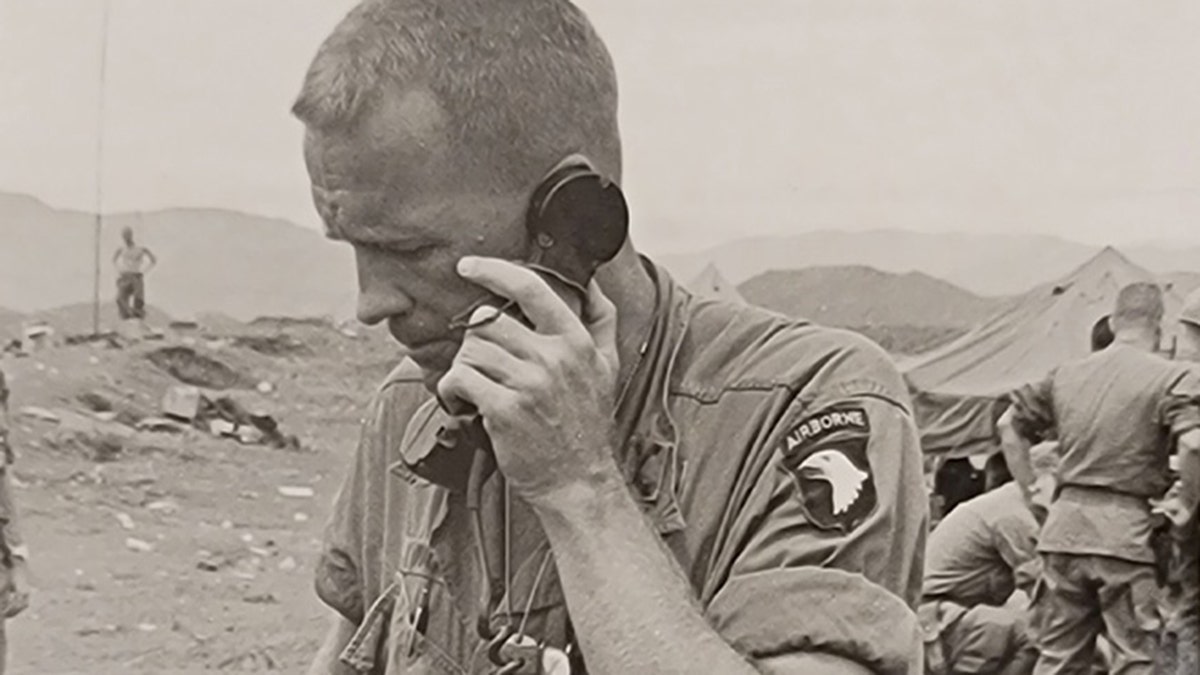
During his 22 years of service, Puckett Jr. received two Silver Stars, two Legions of Merit, two Bronze Stars with V device for valor, five Purple Hearts and other accolades. (US Army/Puckett Family)
During his 22 years of service, he received two Silver Stars, two Legions of Merit, two Bronze Stars with V device for valor, five Purple Hearts, 10 Air Medals, the Army Commendation Medal, and the World War II Victory Medal, among others, according to the Army.
CLICK HERE TO GET THE FOX NEWS APP
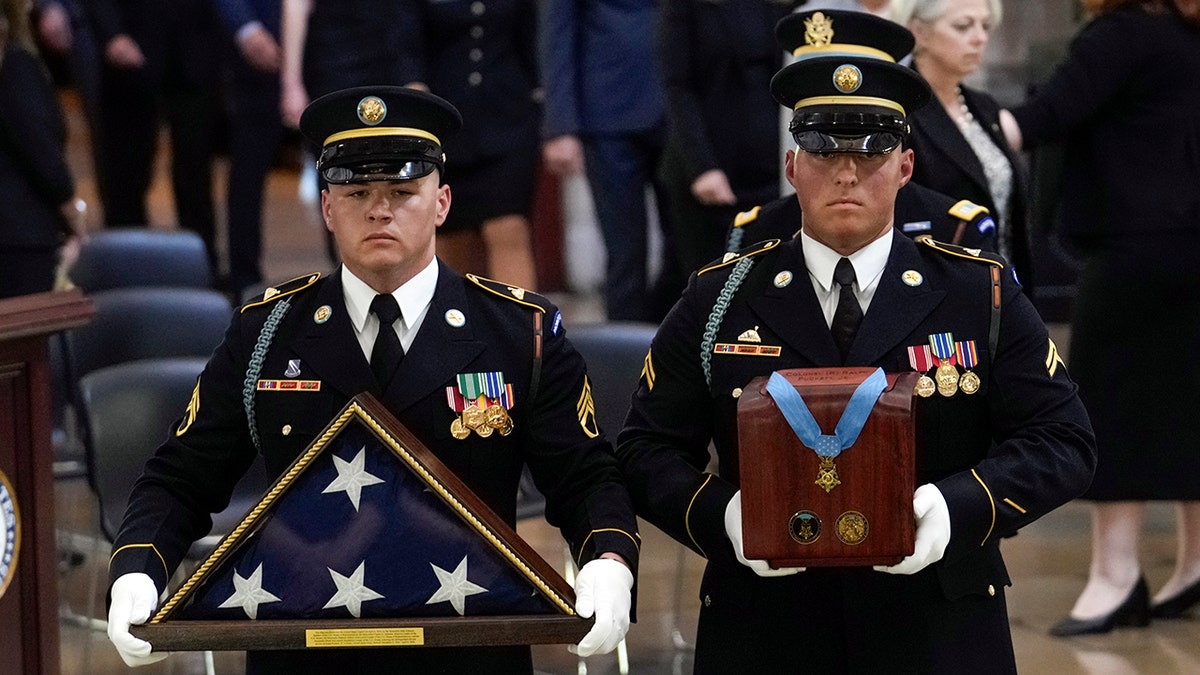
An honor guard carries an urn containing the cremated remains of retired Army Col. Ralph Puckett Jr. during his congressional tribute in the rotunda of the U.S. Capitol on April 29, 2024, in Washington, D.C. (J. Scott Applewhite - Pool/Getty Images)
According to the Architect of the Capitol, government officials and military officers typically lie in state in the U.S. Capitol while private citizens lie in honor.
"No law, written rule, or regulation specifies who may lie in state; use of the U.S. Capitol Rotunda is controlled by concurrent action of the House and Senate. Any person who has rendered distinguished service to the nation may lie in state if the family so wishes and Congress approves," according to its website.

